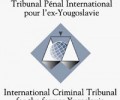Kosovo Government should establish rail service on Kosovo Polje-Lešak-Kosovo Polje line
The Humanitarian Law Center (HLC) and HLC-Kosovo strongly urge the Kosovo Government to establish rail services on the Kosovo Polje – Lešak line and enable the citizens of Kosovo, especially Serbs, to travel freely and cheaply and to conduct their business as they did prior to the attempt of the Republic of Serbia to assume control of the administration of rail services on this line.
With the closure of the Kosovo Polje – Lešak rail service, citizens of Kosovo, especially Serbs from Kosovo Polje/Fushë Kosove, Obilić/Obiliq, Vučitrn/Vushtrri, Mitrovica/Mitrovicë, Zvečan/Zveçan, Leposavić/Leposaviq, Prilužje/Prilluzhë, and Lešak-Leshak, are unable to travel to Mitrovica to sell their goods and to conduct their business as they used to when the Kosovo Polje – Lešak rail service was operational.
A Serb from Bresje gave the following statement to the HLC-Kosovo about the significance of this train:
I used to take a train to transport merchandise to Mitrovica where I sell it and buy groceries necessary for the household. I used to ride the special train, which also had a car for the transportation of goods. Now I can take only a smaller amount of merchandise to Mitrovica because we have to ride a van or our personal vehicles. This means of transportation is not as safe as the train whish was cheaper, and more secure. I was working in the railroad company and I know that each railroad station dispatcher takes care of trains stopping at the station and each train has its own security.
(A.J, a Serb from Bresje/Bresje)
(HLC interview, March 2008)
The train from Kosovo Polje to Lešak and Đeneral Jankovića, or as people like to call it, the Free Movement Train represents a safe and cheap means of transportation of people and goods for the citizens of Kosovo, especially Serbs. Approximately 20,000 people used this train every month. Travellers were satisfied with it, they felt safe, and the fare was cheap. No single incident that would jeopardize the safety of travellers ever occurred on this line.
From the moment it first started operating until the year of 2003 or 2004, KFOR soldiers secured the train. From that moment until the day it stopped transporting people on this line, UNMIK Railway Company hired its own security, which was multiethnic. Therefore, we never had a single incident even though members of all ethnic communities used this train. This helped us feel safer with this means of transportation. The train was cheap; we paid 0.5 euros for a one-way ticket. Now we take a van from Ugljare to Gračanica and then from Gračanica to Kosovska Mitrovica and one-way ticket costs about 400 dinars (5 euros) and we also spend more time travelling. These vans have Serbian license plates and they are not so safe and anyone can stop them on the road to Mitrovica. People who do not have a car travel at their own risk since most of them have Serbian license plates. We haven’t had any incidents still, but who knows. Anything is possible.
(L. J, a Serb from Ugljare/Ugljarë)
(HLC interview, March 2008)
I have been taking my daughter Valentina for five years to Mitrovica for dialysis. She has to go three times a week because one of her kidneys is not working and there is a danger that the other kidney might stop working too. We took the train for the last three years because it was safe and cheap and we are very poor. We paid the ticket to Zvečan and we took a cab from there to the Mitrovica hospital. Since the train stopped running, an ambulance comes from Prilužje to take Valentina to Mitrovica. They do not charge for their services, but we have had a lot of problems getting this ambulance.
(M. K, a Roma from Plemetine/Plemetin)
(HLC interview, March 2008)
We used to take a train to Mitrovica because it was the cheapest, most efficient and safest. People of all nationalities used it. It had its own security, and there were never any incidents inside or outside the train. On our way back from Mitrovica we used a van from Ugljare through Gračanica more often. Today, everyone takes a cab to Ugljare through Gračanica, which is more expensive and not so safe. We go to Gračanica first and then to Mitrovica. We believe that the train needs to start running again because the bus, regardless of who organizes it, cannot be as safe as a train and I do not know how people, Serbs I mean, would accept that since they are still fearful and cautious.
( S. L. a Serb from Ugljare/Uglar)
( HLC interview, March 2008 )
We call on the Kosovo Government, UNMIK, and Kosovo Railroad Company to coordinate their activities and establish a rail service on the Kosovo Polje – Lešak line as soon as possible, thus showing that they are able to take care of the basic needs of the citizens of Kosovo. By re-establishing this service, the Kosovo Government would make a great contribution to the integration of members of the Serb community, who are currently under the strong influence of the non-democratic forces in Serbia.
Signed:
Advocacy Training Resource Center, Kosovo
Avonet, Kosovo
Centar for Development of Civil Society MilenijuM, Serbia
Centar for Development of Civil Society, Kosovo
Centar for Regionalism, Serbia
Center for Social Studies, Kosovo
Center for understanding and democratization, Kosovo
Civic Initiatives, Serbia
Civil Rights Projects Kosovo, Kosovo
Community Building Mitrovice, Kosovo
Council for the Defense of Human Rights and Freedom, Kosovo
Elita, Kosovo
Fractal, Serbia
Helsinki Committee for Human Rights, Serbia
HLC
HLC – Kosovo
Intellectuals Association, Kosovo
Jazas Youth, Kosovo
Kosova Institute for Policy Research and Development (KIPRED), Kosovo
Kosovo Rehabilitation Center for Torture Victims, Kosovo
Lawyers Committee for Human Rights (YUCOM), Serbia
Nansen Dialogue Prishtina Office, Kosovo
Norwegian Helsinki Committee Office, Kosovo
Serbian Refugee Council, Serbia
Women in Black, Serbia
Youth Initiative for Human Rights (YIHR)






